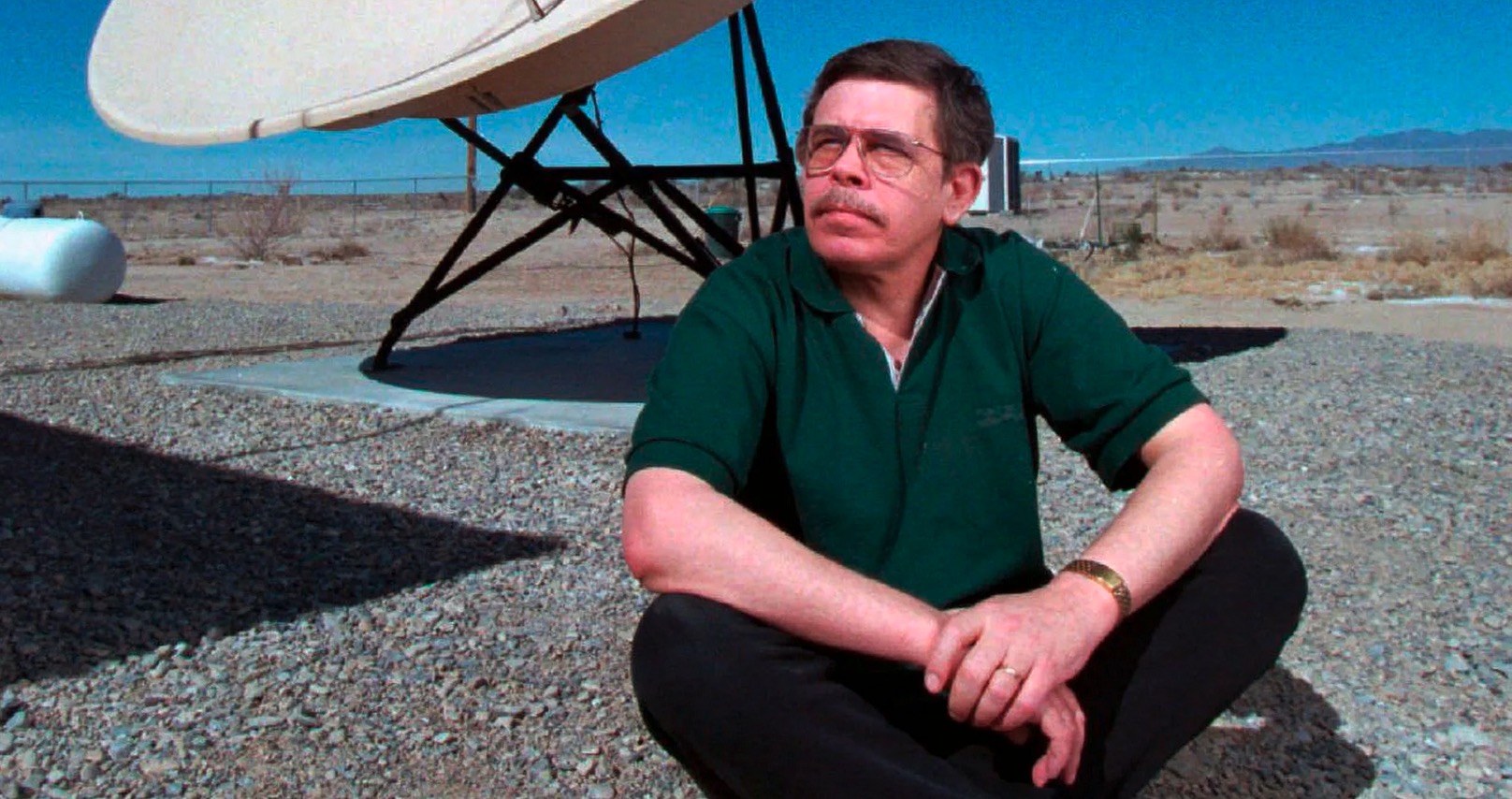Introduction
Art Bell was a legend in late-night radio, best known for his groundbreaking show Coast to Coast AM, where he explored everything from UFO sightings to government cover-ups. On September 11, 1997, he aired what has since become one of the most famous episodes in the show’s history, featuring the now-infamous “Area 51 Caller.” This chilling moment, where a frantic caller claimed to have inside knowledge of extraterrestrial involvement at the secretive military base, left listeners questioning whether it was an elaborate hoax or a disturbing truth. If it was a hoax, it stands as one of the best live moments in radio history. If real, its implications are nothing short of terrifying.

Setting the Scene
On that night, Art Bell was running his usual program, fielding calls from listeners with strange and bizarre tales. The show had built a reputation as the go-to platform for conspiracy theories and the unexplained. The atmosphere was already charged with tension, but no one could have predicted what would happen next. A man called in claiming to have worked at Area 51, the top-secret U.S. military installation long associated with UFO sightings and alien conspiracies.

The Area 51 Caller Incident
The caller’s voice was shaky, filled with fear and urgency. He claimed that the U.S. government was hiding the truth about extraterrestrial beings, and that they were planning something catastrophic. His words were scattered, barely coherent, but they conveyed a deep sense of danger. Then, without warning, the phone line cut off and the broadcast suddenly went dead for several minutes—a rare technical failure in the age of live radio.

Art Bell’s Immediate Response
Art Bell, clearly shaken by the event, immediately contacted his network’s station to try and figure out what went wrong. General Electric (GE), who was responsible for the satellite transmission, responded by saying that their satellites had experienced an unusual “loss of uplink” at the precise moment the call disconnected. It was an anomaly that could not be easily explained, adding a further layer of mystery to the night’s events.

The Penthouse Reporter in the Studio
At the time of the broadcast, there was also an unexpected witness to the incident: a reporter from Penthouse magazine, who happened to be in the studio observing the show. The reporter later recounted how the mood in the studio had shifted dramatically after the call and the satellite failure, noting that Bell was clearly unnerved by the technical disruption. The presence of this third-party observer only heightened the credibility of the moment, as it wasn’t just the listeners who experienced the strangeness; it was witnessed firsthand.
Real or Hoax?
This is where the debate begins: Was the caller’s story legitimate, or was it a hoax? If it was a prank, it may very well be one of the best live radio moments in history. The execution was flawless—the caller’s shaky voice, his incoherent rambling, and the sudden technical failure combined to create an unforgettable moment of suspense. Hoaxes have been a part of the paranormal world for decades, and this one, if fabricated, took the art of live prank calls to a masterful level.
But what if it wasn’t a hoax?
What If It’s Real?
If the call was real, the implications are far more disturbing. Could it be that the caller was indeed an ex-Area 51 employee, someone privy to secrets the government would go to great lengths to protect? The sudden cut-off could suggest that someone, or something, didn’t want that information to be shared with millions of listeners. The idea of a government cover-up surrounding extraterrestrial life has long been speculated, but this incident breathed new life into those conspiracies.
If real, the message the caller tried to convey would mean that not only are we not alone, but that some within our government are complicit in hiding a dangerous truth. The caller’s warning about “something catastrophic” in the works is chilling in its vagueness, but it adds an element of dread to the entire narrative. What could this “something” be, and why was it important enough to silence?

Aftermath and Legacy
Following the broadcast, the episode became an instant sensation. Discussions and debates erupted on forums, chat rooms, and conspiracy websites, with some convinced it was a hoax, while others believed it was genuine. Art Bell himself remained noncommittal about whether he thought the call was real, but the incident became part of the show’s lore, referenced again and again by fans and UFO enthusiasts alike.
Cultural Impact
This moment in radio history continues to captivate listeners. The audio of the Area 51 call can still be found circulating online, with some analyzing the caller’s voice and mannerisms to determine its authenticity. Whether real or not, the broadcast helped cement Coast to Coast AM as the go-to source for those searching for answers to the world’s strangest and most unsettling questions. It also added fuel to the already burning fire of UFO conspiracies, especially surrounding Area 51.
Conclusion
Whether a masterfully executed hoax or a real-life warning from a man in fear for his life, the Area 51 caller’s story remains one of the most intriguing moments in radio history. If it was a hoax, it exemplifies how radio can be used to craft an unforgettable live experience. If it was real, the consequences are chilling. Either way, the call that aired on Art Bell’s Coast to Coast AM on September 11, 1997, will forever be remembered as a moment that blurred the line between fiction and reality.
Area 51 Caller
This is a clip from the caller. The call was roughly 2 hrs into the broadcast.

